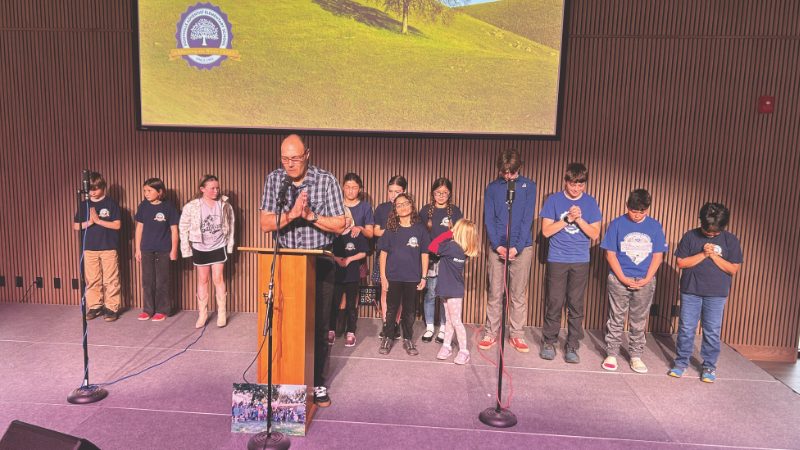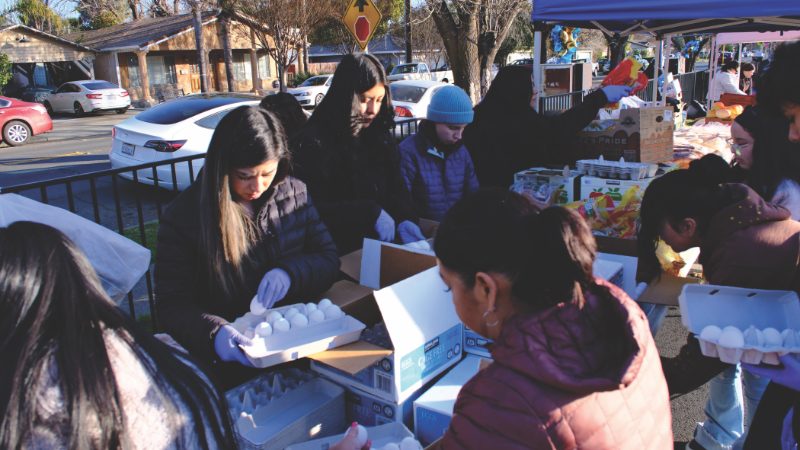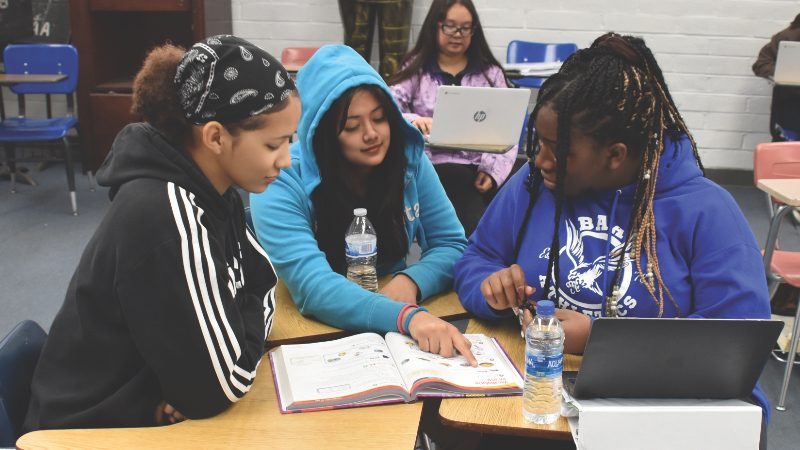His Story
By Marc K. Woodson, President of the Northern California Conference
HISTORY HELPS US COMPREHEND PRESENT CIRCUMSTANCES AND GIVES US THE GROUNDWORK FOR FACING FUTURE CHALLENGES.

Many students ask, “Why is history important?” According to the history department at the University of Wisconsin-Madison, “History gives us the tools to analyze and explain problems in the past; it positions us to see patterns that might otherwise be invisible in the present—thus providing a crucial perspective for understanding (and solving!) current and future problems.”
In other words, history helps us comprehend present circumstances
and gives us the groundwork for facing future challenges. When Carter G. Woodson established the Association for the Study of Negro Life and History in 1915, this was his aim.
Woodson noted that African American contributions “were overlooked, ignored, and even suppressed at times by the writers of history textbooks.” He concluded, “Race prejudice is merely the logical result of tradition, the inevitable outcome of thorough instruction to the effect that the Negro has never contributed anything to the progress of mankind.”
Woodson then pioneered the celebration of “Negro History Week,” designed for the second week in February, coinciding with the birthdays of two great emancipators—Abraham Lincoln and Frederick Douglass. To explain, Woodson wrote:
It is not so much a Negro History Week as a History Week. We should emphasize not Negro History but the Negro in History. We need not a history of selected races or nations, but the history of the world void of national bias, race hatred, and religious prejudice.
As a Seventh-day Adventist Christian of African descent, I have always seen a higher purpose when reflecting upon this month’s celebration. I see a presence of a personal God within history. It is this God, the Great I Am, the God of Abraham, the God of Isaac, and the God of Jacob, who said to Moses, “I have surely seen the oppression of My people who are in Egypt, and have heard their cry because of their taskmasters, for I know their sorrows. So
I have come down to deliver them out of the hand of the Egyptians” (Exodus 3:7-8, NKJV). This biblical sentiment is a popular motif in the liberation struggle that many African Americans have adopted.
History gives us an up-close view of God’s divine hand in human lives. It confirms that God is not far away, remote, or disinterested in human plight. He shines through the tapestry of human history to intervene, deliver, correct, and bring justice and, sometimes, retribution. From the Christian perspective, history is God’s story. And through His story, we glimpse His divine character and better understand His presence in our current circumstances.
When we examine Joseph’s experience in Genesis and all he went through—betrayed by his brothers, taken from his homeland, sold into slavery, incarcerated on false charges, abandoned by a prisoner he helped—we can see that Joseph knew that God took what was meant for evil and turned it around for his good! Joseph’s story was also God’s story.
Our God intervenes in the affairs of humanity and weaves a tapestry of blessings using the scraps of man’s inhumanity. Like Joseph, African people were snatched from their homeland, sold into slavery, debased as animals, deprived of their identity, and kept in ignorance. How can these people perceive God amid their oppression? As we have seen when the enslaved people were emancipated, God delivers, makes the crooked places straight and the rough places plain, and every valley shall be exalted and every mountain made low.
History’s higher purpose is to reveal that God is the central character in our lives. There is no other way to explain Benjamin Banneker, Phyllis Wheatley, Richard Allen, Harriet Tubman, Sojourner Truth, Frederick Douglas, George Washington Carver, Booker T. Washington, Scott Joplin, W.E.B. Dubois, Ida B. Wells, Mary McCloud Bethune, Marian Anderson, Duke Ellington, and Martin Luther King Jr. Their stories are miracles of God! It defies the imagination.
What the devil and his minions meant for evil—make no mistake about it, slavery, racial terrorism, lynching, segregation, and racism are pure evil—God, in His mercy, would make it good.
Like Joseph, African Americans can look back at their experience and know God was present—ever directing, ever interceding, ever delivering, ever carrying out His purpose. With that in mind, we can triumphantly sing:
God of our weary years,
God of our silent tears,
Thou who has brought us thus far on the way;
Thou who has by Thy might,
Led us into the light,
Keep us forever in the path, we pray.
Lest our feet stray from the places, Our God, where we met Thee;
Lest, our hearts drunk with the wine of the world, we forget Thee;
Shadowed beneath Thy hand,
May we forever stand,
True to our God,
True to our native land.
—James Weldon Johnson, “Lift Every Voice and Sing”

Santa Rosa Church Thinks Inside the Box
By Ken Miller

On Dec. 9, after being shut down for two years because of the pandemic, the Santa Rosa church resumed its annual nativity program.
For 23 years, cars would drive through the parking lot and see the live scenes, which had large painted backdrops setting the location and mood of the most popular segments of the Christmas story. According to one member, “A hundred cars per night or more was normal for our event.”
Brad Gienger, head pastor, explained, “This is an event that I grew up going to as a kid. It is part of my family Christmas tradition, as it is for many in the community.”

However, time and the elements deteriorated the aging backdrops while they were stored during the pandemic. “What fading paint, dirt, and mildew left, mice and other vermin made nests in. A total loss.” according to one event host.
Undeterred, members decided to continue the event as a walk-through experience. Starting in the back of the church building and moving through the many classrooms, lobbies, hallways, and finally the sanctuary, attendees were escorted to each scene on foot in small groups.
“This new format gave us the ability to keep the event alive and created many opportunities for a personal connection with our festive neighbors,” Gienger said. “What we discovered in these interactions is that our church has been part of many neighborhood family Christmas traditions, just like it was for me! That realization showed us that it’s time to connect relationally with those friends.”

According to one member who acted as a guide, “When it was just cars driving through, we rarely made personal contact. But I’ve been able to talk to many people tonight. It has been much more relational, and the ability to make friends is great.”
Gienger concluded by saying, “From what we experienced this year, we are reviewing the entire event—from the quality of production to how to reach and better serve our community.”
Stockton Central Feeds Community
By Meleseini Tu’itupou

Stockton Central church engages its community with compassion with
many community-relevant service projects.
For nine years, the homeless feeding team has faithfully provided meals to thousands of unhoused residents in Stockton. Twice a year, the team collects food from members and works in partnership with a local food bank. Then, on a Sabbath, they feed many grateful people.

Another team in the church operates the community service ministry. Once a month, they open the church gates and gym doors to give supplies to the surrounding community. According to David Salcido, church member, “Depending on the season, weather, or holiday, 50 to 70 customers per day is normal.”
Salcido continued, “You don’t always receive a lot of thanks in this ministry. But that one special person will thank you from the bottom of their heart because you have filled a real need, and that makes it all worth it.”

Scott Valley Church Heralds the Season
By Ken Miller
On Dec. 4, the Scott Valley church performed a Christmas cantata titled “Christmas Presence.” Over 100 attendees crowded the rural chapel. Bob Mason, district pastor, said, “I am so pleased with our church’s community engagement. The sanctuary was packed with members and community attending and participating!”

Some of those attending included several Greek Orthodox nuns from a local convent. “I would say at least 80% of attendees were from other denominations,” Mason said, “and many smiles, expressions of joy, and appreciation were heard during the program and the following reception.”
One blessed attendee said, “I enjoyed the Christmas cantata last night! It was neat to see so many churches under your roof to worship God!”






